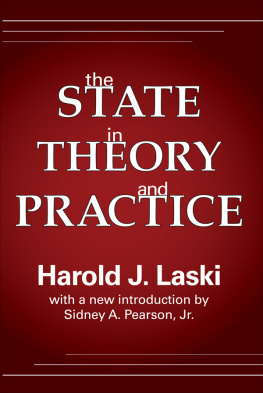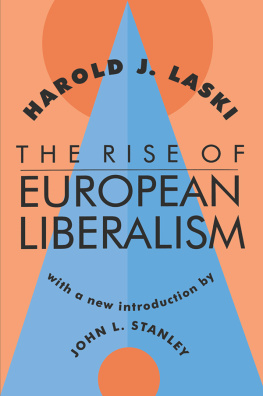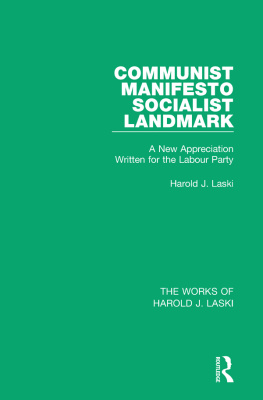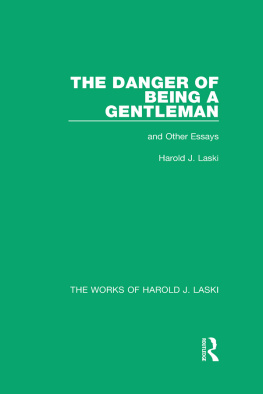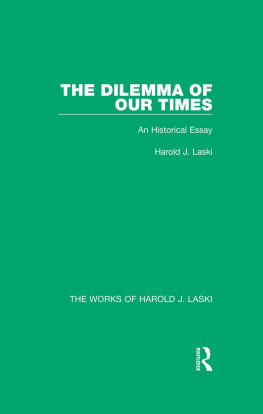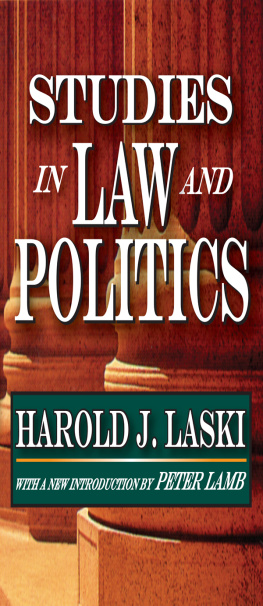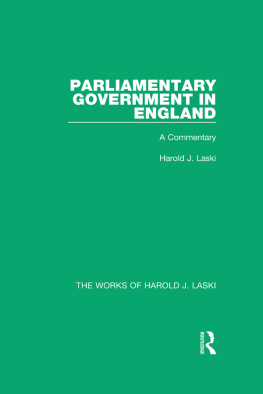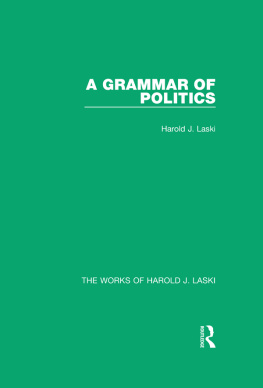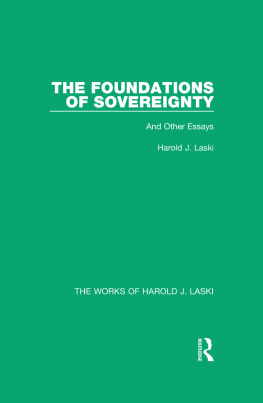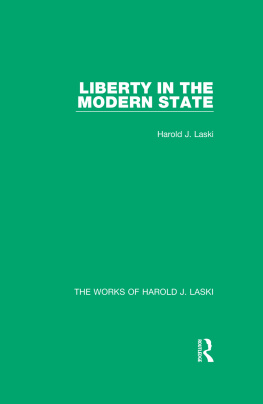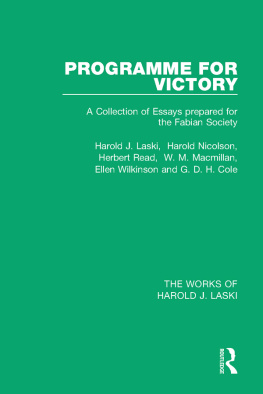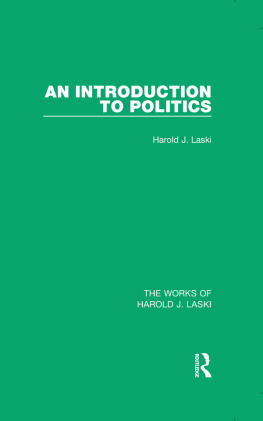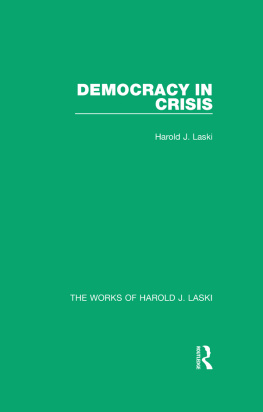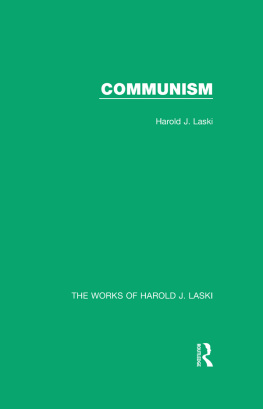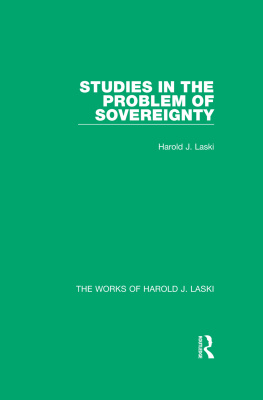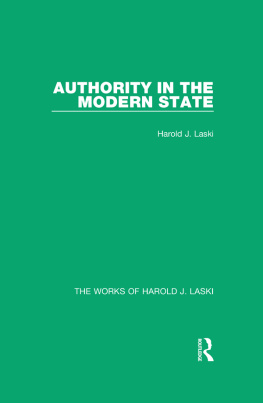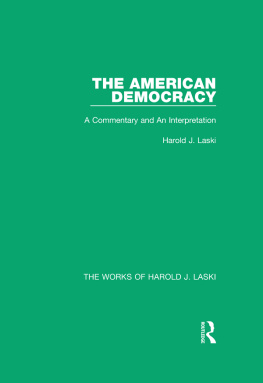Who was Harold Laski and why should one of his least discussed books in his own lifetime, The State, written in 1935, be read today? The first part of the question is more easily answered than the second. Both answers are to be sought in his personal biography and the extensive influence his work has had on twentieth century thought in general, especially political thought on the Left.
Laski was born in 1893 to wealthy, liberal Jewish parents. He was precocious as a child and entered Oxford where he graduated with a First in 1914. As an undergraduate at Oxford he actively embraced both atheism and the guild socialism of G. D. H. Cole. As a child and as an adult he tended to be sickly and was rejected as unfit for military service at the outbreak of World War I. He began his academic career shortly thereafter at McGill University in Montreal, Canada. He also taught briefly at Harvard University in the United States where he was very much impressed by American pragmatism, especially the theories of John Dewey and William James. The experiences at Harvard made him a lifelong student of American government, politics, and society in general; he always regarded himself as a major interpreter of American government to his English audience. He returned to England in 1920 where he secured a post at the London School of Economics, a position he held until his death in 1950.
Most contemporary students of politics who know his name are more likely to encounter it secondhand as the object of George Orwells merciless attack in his Politics and the English Language. From the 1920s through the 1940s, Harold Laski was one of the most influential Marxist academic political theorists in the English-speaking world. Although his academic teaching institution was primarily in England at the London School of Economics, the historian Arthur Schlesinger, Jr. referred to him as a writer whose influence among Americans far exceeded that of any native Marxist. Throughout his lifetime, Laski was an intellectual figure on the Left to be reckoned with.
The State is a work that seems to grow in significance as The Age of Laski, like a cat with nine lives, never quite seems to die. Since the fall of the Soviet Union in 1990 there has been a modest revival of interest in Laski that has focused on almost every aspect of his work and has treated his Marxism almost as an afterthought. A new generation of writers on the Left has found in Laski something worth restoring in political science apart from his overt Marxist point of reference. Reading Laski anew must therefore attempt to answer what this something is. On the one hand it seems to be rooted in the notion that Marxism as a theory can be revived without the Marxism of historical experience; what might be described as Marxism for vegetarians.
Reevaluating Laski, however, will require some effort since the twentieth century has not been kind to the Marxist theory of progress; clearly the vegetarian phase of Marxism has yet to appear as something we can all experience. Indeed, looking back on the twentieth century as a whole, it is difficult to say that the twentieth century represents any sort of political progress over, say, the nineteenth or eighteenth century at all. The very idea of progress of a political sort seems even more problematic to later generations than it did to Laski and his generation.
The second part of the question, why should he be read today? is more difficult to answer in part because it is tied to the first question as if by an umbilical cord that is impossible to break, however much some may try. Laski was a man of the Left and his embrace of Marxism as the best mode of modern political analysis and the Russian Revolution as the best example of the practical union of political theory and practice could easily be read at the beginning of the twenty-first century as an academic embarrassmentcompounded by the unanticipated collapse of the Soviet Union in 1990, one of the two great totalitarian failures of the twentieth century. In light of the failure of Soviet Marxism, we might read Laski simply or primarily to understand the appeal of Marxism among intellectuals of his era. Reading him in this way might make him someone of historical interest, but not necessarily a writer of continuing interest.
Yet Laskis appeal has persisted beyond the collapse of Marxism as a political system and much, though not all, of socialism as an economic system. Socialism as a theory seems unrelated to economic practice, much less our experiences with the intersection of economics and politics in the very sorts of regimes Laski despised. We may conclude that his appeal may even be enhanced in the sense that Laski can now be read without specific reference to the Soviet Union as the embodiment of his idea of theory and practice; the theoretical structure of his arguments can be divorced from the reality of the Marxist state just as the theoretical arguments for socialism can be divorced from the economic performance of socialist experiments. Some explanation for the continued relevance of Laski in the post-Soviet era and in contemporary political science therefore seems to be in order. He remains worth reading, thought not necessarily for exactly the same reasons he was so widely read in his own day. At the height of his influence in the 1930s, he seemed to offer a viable theoretical explanation and political alternative to the Great Depression and the rise of fascism that perplexed so many of his contemporaries.

